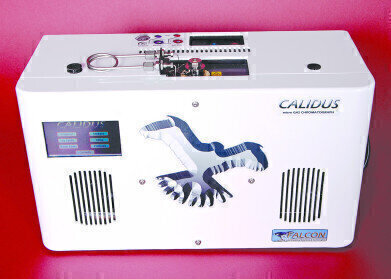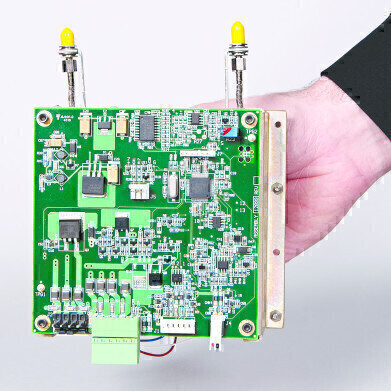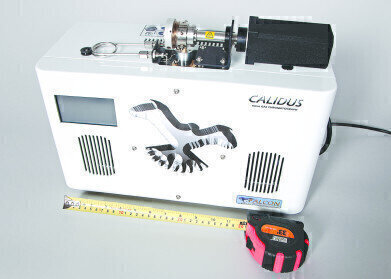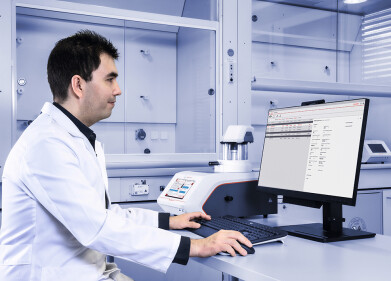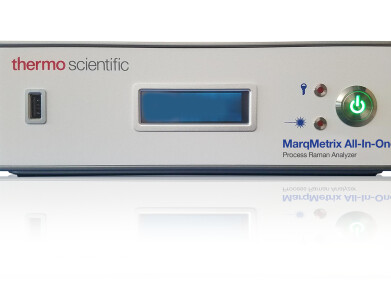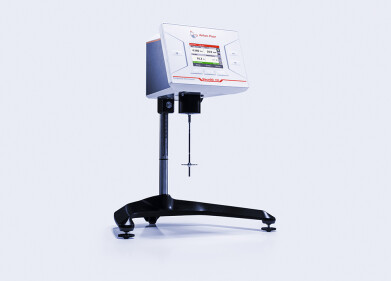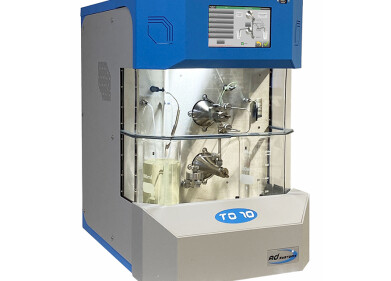Analytical instrumentation
The CALIDUSTM Gas Chromatograph is Faster, Smaller, Smarter, Easier and Greener Than Traditional GCs
Jan 18 2017
With analytical cycles 10 to 50 times faster than traditional gas chromatography, the unltrafast Calidus GC from Falcon Analytical vastly increases responsiveness for the data consumer. Less time spent waiting on results means more productivity and timely control of the measured process. In the hands of lab and process managers, the speed of the CALIDUS GC can translate into better quality products, produced faster and more profitably than ever before.
The Calidus GCs employ a patented direct, resistively heated column module. There is no need for an air bath oven in the design. Elimination of the air bath column oven, that is required for traditional gas chromatography, drastically reduces the analyser’s footprint. At less than 11.5 kg and measuring 43 cm W X 21.5 cm D X 27.9 cm H, the CALIDUS GC offers advanced analytical chemistry in a highly compact and transportable package.
The small CALIDUS footprint allows for higher installation density in the laboratory and in shelters for process applications. This small footprint also enables process installation schemes that place the analyzer much closer to its sampling point in the plant.
Using modern computing with standard operating systems and software, the automated CALIDUS GC frees valuable technical resources from the daily grind of interpreting and validating chromatographic results. Built-in alignment software virtually eliminates misidentification of components and drastically reduces the need for expensive calibration sample runs.
The CALIDUS GC’s patented, plug-and-play temperature-programmed gas chromatography column modules also allowed the Calidus GC designers to avoid the complicated and troublesome valve schemes used in isothermal process analysers and many lab gas chromatographs. Correlation between laboratory systems and online process control systems becomes realistically possible with this design, because both physical packages use the same measurement principle, hardware and methodology. Applying the CALIDUS design in-lab and online means less time spent reconciling lab and process measurements.
The more obvious features and benefits outlined above combine to yield something that may not be that evident: Green Process Analytical Chemistry. Consuming less than 300 Watts in operation, the CALIDUS ultrafast GC uses a small fraction of the up to 3000-watt rate required by traditional gas chromatographs. Combine these savings with the reduction in workload for air conditioning systems and the solution is greener still.
The speed of the Calidus GC inspired Falcon to author a new ultrafast SimDis method. The Ultrafast ASTM D7798 SIMDIS Method performs simulated distillation nearly six times faster than the equivalent D2887. D7798’s speed enables increased throughput, superior repeatability and reproducibility, tighter control parameters, increased product quality, cost reduction and feedstock conservation.
With improved repeatability and reproducibility, technical staff can spend less time on misleading, analytical variance and more time on true process variance and related product quality analysis. Better control also enables conservation of feedstock, resulting in greener operations all around.
If the user can squeeze more product from the same quantity of feed stock, two things can happen: there is more for someone else to use, or consumption of the valuable and vital resource is reduced.
Digital Edition
PIN 25.6 Buyers' Guide
January 2025
Buyers' Guide Directory - Product Listings by Category - Suppliers Listings (A-Z) Articles Analytical Instrumentation - ASTM D7042: The Quantum Leap in Viscosity Testing Technology -...
View all digital editions
Events
Jan 20 2025 San Diego, CA, USA
Jan 22 2025 Tokyo, Japan
Jan 25 2025 San Diego, CA, USA
SPE Hydraulic Fracturing Technology Conference and Exhibition
Feb 04 2025 The Woodlands, TX, USA
Feb 05 2025 Guangzhou, China
